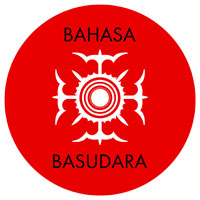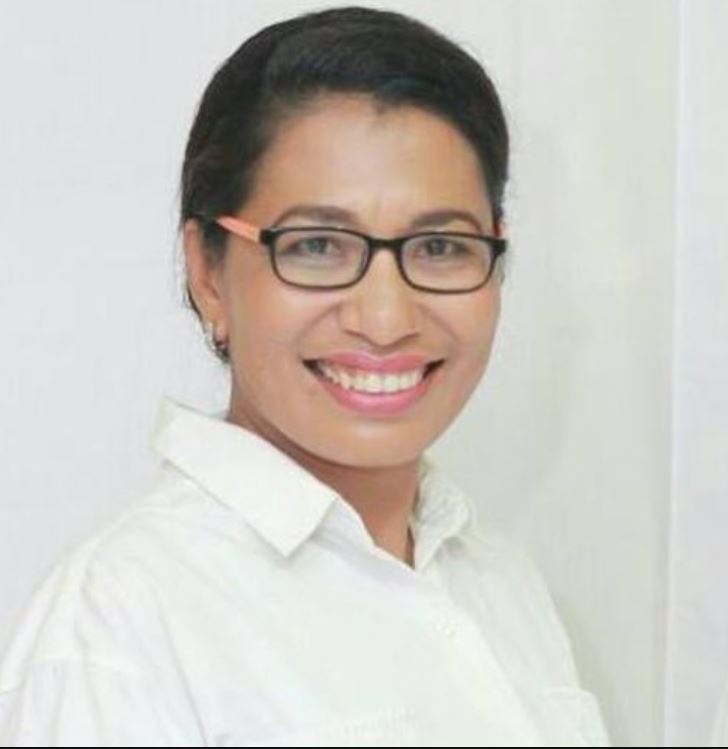It’s all in the name! Last Friday’s (25th September 2020) Bacarita dari Timur webinar speaker Elsye Latuheru, couldn’t have picked a better name for her Parakletos Foundation. Parakletos is derived from the Greek word Paraklétos and means: ‘Called to one's aid’. Usi Elsye came to the aid of Moluccan communities and has been responsible for a remarkable transformation within the Moluccan society. She said: “Leadership to me means, changing or influencing others and therefore leadership means contributing to society.”
She had already made her appearance during Pak Doni Monardo’s webinar (11th September 2020), but this time was given her own airtime to tell those present, more about how her leadership skills and her projects in Maluku. The webinar opened with CNN footage about seaweed cultivation in the Kei Islands, and the positive impact it had on poverty eradication, women empowerment, health, sanitation and education. It also showed Usi Elsye’s foundation, which concentrates on community activities, providing inter-religion interaction and advocating tolerance. The foundation also organises specialised trauma healing activities through music and arts.
The second part of the webinar was a workshop, which focused on leadership and contribution. Usi Elsye (who had travelled 60 kilometres and had to hire a hotel room, to get a good internet connection for the webinar) spoke passionately and eloquently about her dream of poverty eradication, women empowerment and creating world leaders from Maluku. “Maluku is blessed with so many natural resources (like Pak Doni she also mentioned the VOC and its exploitation of Maluku’s resources), but we are still one of the poorest provinces in Indonesia. I am not blaming anyone (i.e. the Government), but I want to understand the situation and to change the future”, she said.
She then talked about what it was like to work together with Pak Doni and said that if he, as a non-Moluccan, is already helping us, then Moluccans themselves must be pro-active as well. She was adamant that Moluccans were certainly not workshy, but that they lacked the right opportunities and guidance.
Two years ago, she decided to start working at a grassroots level. She went to Siatela in North Seram, an area so remote that locals have to walk 3 to 4 days to get to the nearest shops for their basic needs. She found out that they were selling their fertile land cheaply, so they could pay for their children’s education. Shocked by this, she wanted to change their mindsets and introduced them to cultivating their land instead.
She explained that by planting Lemongrass seeds (provided free of charge as part of the Emas Hijau programme), you could already have a harvest within six months. Its oil can be used as a blend to increase octane in fuels and as a result, reduce emissions. She then went into lecture mode, got her pen out and showed some interesting calculations. To prevent companies from taking advantage of this programme, they limited the free seeds to families who owned up to 3 hectares of land. So far, 53 families in Siatela are involved in the programme.
She then talked about the Porang Tree, which is harvested for its tuber and offers a wide range of applications in the food (gelatine) and pharmaceutical (diabetes) industries. Like lemongrass, it’s a fast-growing plant and after 6 months you could already reap its benefits. What it ultimately comes down to, is that these short-term plants (including carrots, red onions and sago), are of a higher value than the traditional long-term plants such as cloves and nutmeg.
She also mentioned the Emas Biru programme and in particular the Tuna Holding Cages in Kasuari Island, West Seram. Nowadays they stun the fish, freeze them and send them (as a whole fish) overseas. This reduces the wastage and instead of fish pieces, they get paid for the whole fish.
Usi Elsye stressed the importance of her grassroots work. How she encouraged local people by gaining their trust and by showing them to implement the Emas Hijau and Emas Biru programmes.
Towards the end of the webinar Daya Lima’s directors Rene Turangan and Ketut Saguna, both praised Usi Elsye’s leadership qualities and how these can be duplicated and implemented in other areas.
Pak Rene said: “Elsye embodies the ‘If I can do it, then everyone can do it’ attitude. She finds strength from her belief that everything happens with God’s help and therefore she can focus on helping people and not worry about what others say.”
Pak Ketut added that leadership has three qualities: “Thinking ahead (look at the future and do the planning); Thinking Across (how to solve the issue, why can’t we do it) and Thinking Again (how to improve the programme). Usi Elsye showed all these qualities in her work.”
At the end of the webinar, there was a long Q&A session and Usi Elsye promised to write down the steps so they can duplicate these programmes in other places.
If you’re interested in watching this webinar again, click on
this link. Don’t miss
our next webinar on Friday 9th October at 16:00hrs WIT either, when
we have RockyHehakaija – the only female member of the Street Legends, the best Street Football
Team in the World.


11_105_90.jpg)




_105_90.png)